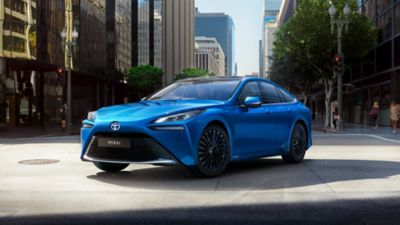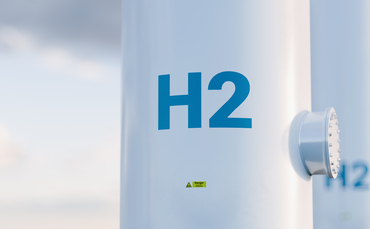The new "anti" EV talk I seem to get now is "Hydrogen is the way forward", "Its greener", "you can go further" & "My mate's dad told me its the future" blah blah blah
Yes and no is my answer, but never really looked into it before. Planes i can kind of see a yes, Large lorry too. But smaller vehicles and Cars not so much. We just need to produce more of the "Green" hydrogen.
I see this big Hydrogen push as a way for the oil/gas industry to cash in and not lose out by fluffing/ignoring the side affects. Yes, Electricity producers are the same.
Note - The below is my view and research on this subject, so please take this with a hand full of salt.
Enjoy reading and have fun laughing, crying, discussing, arguing, debating & shooting down! (Just be polite to all)
Also the Below is looking at cars and not any other means of transport. Also not taking into account "renewables" in the averages below
First lets look at Hydrogen. There are 3 "main" types. Grey, Blue & Green (There are others but these seem to be the main ones)
Grey - 95% of todays global production. Produced using and splitting Natural Gas. CO2 is not captured but released back into the atmospher (9.3kg of CO2 per kg of Hydrogen produced)
Blue - As Grey, but the CO2 is captured and stored underground via industrial carbon capture and storage (CSS) (although in the real world around 10-20% cannot be captured)
Green - Produced by electrolyser technologies (approx 1% of global produced Hydrogen - Co2 not produced using Renewables)
Electricity used in the production of Hydrogen. 5 to 55kWh used to produce 1kg of Hydrogen. No clear answer on this so assumed an average of 30kWh/kg.
Looking at whats available now - Toyota Mirai:
Usable Energy per Tank in a Mirai:
CO2 prodcued by a full tank in a Mirai (Grey, Blue & Green):
Looking at the CO2 emissions factor comparing the Mirai to a M3 (SR+ & LR)
CO2 emissions per mile
Also - The cost of a Hydrogen fuel station is around £2-3m per station. You could get a lot of 50-250kw chargers for that (assume £10k per rapid charge inc utilities thats around 300 units). And then there is the transort of the hydrogen to these stations that is needed either via pipe lines or tankers. Yes could be done on site via Solar/Wind to produce green hydrogen but that seems way off.
They also bang on about that they can fill the car up in 5mins. But they forget to tell you or didnt know that at the moment the station requires 10-20mins to "recharge" the pressure for the next vehicle.
Ps - feel free to use/alter
References for the above data & content:

 energy-cities.eu
energy-cities.eu

 www.toyota.co.uk
www.toyota.co.uk
 www.uigi.com
google
www.uigi.com
google
Yes and no is my answer, but never really looked into it before. Planes i can kind of see a yes, Large lorry too. But smaller vehicles and Cars not so much. We just need to produce more of the "Green" hydrogen.
I see this big Hydrogen push as a way for the oil/gas industry to cash in and not lose out by fluffing/ignoring the side affects. Yes, Electricity producers are the same.
Note - The below is my view and research on this subject, so please take this with a hand full of salt.
Enjoy reading and have fun laughing, crying, discussing, arguing, debating & shooting down! (Just be polite to all)
Also the Below is looking at cars and not any other means of transport. Also not taking into account "renewables" in the averages below
First lets look at Hydrogen. There are 3 "main" types. Grey, Blue & Green (There are others but these seem to be the main ones)
Grey - 95% of todays global production. Produced using and splitting Natural Gas. CO2 is not captured but released back into the atmospher (9.3kg of CO2 per kg of Hydrogen produced)
Blue - As Grey, but the CO2 is captured and stored underground via industrial carbon capture and storage (CSS) (although in the real world around 10-20% cannot be captured)
Green - Produced by electrolyser technologies (approx 1% of global produced Hydrogen - Co2 not produced using Renewables)
Electricity used in the production of Hydrogen. 5 to 55kWh used to produce 1kg of Hydrogen. No clear answer on this so assumed an average of 30kWh/kg.
Looking at whats available now - Toyota Mirai:
| ||||
| Range | 274 | miles per tank | 342 NEDC (assume 80% real world) | |
| Tank Size (kg) | 5 | kg | to fill (approx) | |
| Tank Size (Ltrs) | 70.64 | Litres | 1kg = 14.128litres - Liquid hydrogen conversion | |
3.87 | Miles per ltr | |||
| 5 to 55 kWh of electricity to produce 1 kg of hydrogen (Grey, Blue or Green) | Hard to find a true consumption rate | |||
30 | kWh/kg | Average taken | ||
| Hydrogen - 1kg = 14.128litres | 2.12 | kWh/ltr | ||
| Toyota Mirai uses (Not taking losses etc into account) | 150 | kWh per tank | From the production of Hydrogen noted above | |
| Which works out at approx | 1.82 | Miles per kwh |
Usable Energy per Tank in a Mirai:
| 1 kg of hydrogen contains approx 33.33 kWh of usable energy | 166.65 | kWh per tank (4.7kg tank - Mirai) |
CO2 prodcued by a full tank in a Mirai (Grey, Blue & Green):
| Grey Hydrogen - Produced by Natural GAS (approx 95% of global produced Hydrogen - Co2 not captured) | |||
| Emits about 9.3kg of CO2 per kg of hydrogen produced. | |||
| Toyota Mirai Co2 produced per tank (full tank) | 43.71 | kg of Co2 (Grey Hydrogen) | |
| Blue Hydrogen - Produced by Natural GAS (appox 4% of global producd Hydrogen - Co2 captured) | |||
| Around 10-20% of the generated CO2 cannot be captured. | |||
| Toyota Mirai produced per tank (full tank) | 6.56 | kg of Co2 (Blue Hydrogen - Avg 15% of 9.3kg) | |
| Green Hydrogen - Produced by electrolyser technologies (approx 1% of global producd Hydrogen - Co2 not produced using Renewables) | |||
| Toyota Mirai produced per tank | 0.00 | kg of Co2 |
Looking at the CO2 emissions factor comparing the Mirai to a M3 (SR+ & LR)
| Electricity | |||
| CO2 emission factor used is 0.309 kge / kWh, taken from BEIS (2018) 2018 Government GHG Conversion Factors | |||
| Renewables will produce less to 0kg/kWh | |||
| Toyota Mirai (150 kWh per tank) | 46.35 | CO2 using 0.309kg/kwh | |
| Tesla Model 3 SR (55kWh battery size) | 16.995 | CO2 using 0.309kg/kwh | |
| Tesla Model 3 LR (75kWh battery size) | 23.175 | CO2 using 0.309kg/kwh |
CO2 emissions per mile
| CO2 used per mile (RW = Real World) | |||
| Toyota Mirai | 0.169161 | kgCO2/Mile | 274 miles per full tank |
| Tesla Model 3 SR | 0.084975 | kgCO2/Mile | assume RW* 200 miles per 100% |
| Tesla Model 3 LR | 0.082768 | kgCO2/Mile | assume RW* 280 miles per 100% |
Also - The cost of a Hydrogen fuel station is around £2-3m per station. You could get a lot of 50-250kw chargers for that (assume £10k per rapid charge inc utilities thats around 300 units). And then there is the transort of the hydrogen to these stations that is needed either via pipe lines or tankers. Yes could be done on site via Solar/Wind to produce green hydrogen but that seems way off.
They also bang on about that they can fill the car up in 5mins. But they forget to tell you or didnt know that at the moment the station requires 10-20mins to "recharge" the pressure for the next vehicle.
Ps - feel free to use/alter
References for the above data & content:

50 shades of (grey and blue and green) hydrogen - Energy Cities
When discussing the future of energy, hydrogen is on everyone’s lips. You might have heard of some of the colours associated to hydrogen, and wondered […]

Toyota Mirai | Explore the Latest Range | Toyota UK
Discover the hydrogen-powered Mirai. With 0% emissions, impressive power and an irresistible driving experience, Mirai is pioneering the future of mobility.
Universal Industrial Gases, Inc. ... Hydrogen Unit Conversion (gas, liquid)
hydrogen gas and liquid unit conversion tables - weight, gas volume, liquid volume (pounds, kilograms, standard cubic feet, standard cubic meters, gallons, liters)
Last edited:






